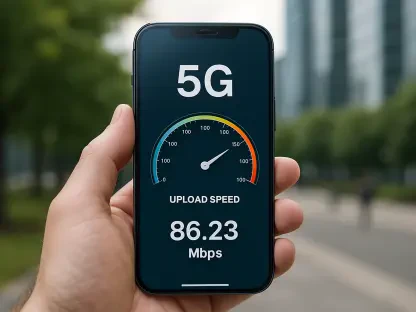In a nation where over 200 million people rely on telecommunications for daily connectivity, the arrival of a new player like Vitel Wireless Limited as Nigeria’s latest licensed Mobile Virtual Network Operator (MVNO) signals a potential shift in the industry’s dynamics. The company’s nationwide rollout of 50,000 SIM cards and eSIMs across all 36 states and the Federal Capital Territory represents a bold step toward enhancing digital access for millions of Nigerians. This initiative, launched on August 1, is not just about expanding subscriber numbers but about addressing critical gaps in connectivity, particularly in underserved rural and urban areas. With a focus on affordability and innovation, Vitel Wireless aims to redefine how telecom services are delivered, leveraging existing infrastructure through strategic partnerships. This development raises intriguing questions about how such an ambitious entry could influence competition, accessibility, and technological advancement in one of Africa’s largest telecom markets.
Pioneering Connectivity with Innovative Solutions
The scope of Vitel Wireless’s rollout is both extensive and strategic, with over half of the initial SIM cards distributed through authorized retail outlets, airport kiosks, and mobile kiosks to ensure widespread accessibility for diverse subscribers. A key aspect of this deployment is the integration with the National Identity Management Commission’s SIM-NIN platform for Know Your Customer (KYC) compliance, showcasing a strong adherence to regulatory standards. Beyond traditional voice, SMS, and data services, the remaining SIMs are allocated for cutting-edge applications such as Internet of Things (IoT) devices, AI-powered home security systems known as iSEEYOU, and location-based tools like SecurMe and Push-My-Location. Additionally, tools like Oga-App for employee performance tracking highlight a commitment to niche, technology-driven solutions. This multifaceted approach positions Vitel Wireless as a forward-thinking operator, intent on enhancing user experiences by blending conventional telecom offerings with emerging digital innovations in a competitive landscape.
Driving Competition and Digital Inclusion
Vitel Wireless’s entry into Nigeria’s telecom sector, already bustling with over 200 million subscribers, is poised to intensify market competition while fostering greater digital inclusion. Operating as an MVNO, the company leverages existing infrastructure through a roaming partnership with a major network operator, MTN, allowing for cost-effective expansion and tailored service offerings. This initial rollout serves as a testing phase to refine network performance before a full commercial launch planned for the second quarter of next year, reflecting a cautious yet progressive market entry strategy. Industry analysts see this as a catalyst for innovation, likely to encourage other operators to enhance their services. The emphasis on underserved regions aligns with global trends where telecom technology addresses societal disparities, promising to bridge the digital divide. Engr. Kenneth Nwabueze, Executive Chairman of Vitel Wireless, underscored this vision, noting that reliable connectivity empowers Nigerians, marking a significant stride toward broader digital access and economic growth in the region.









